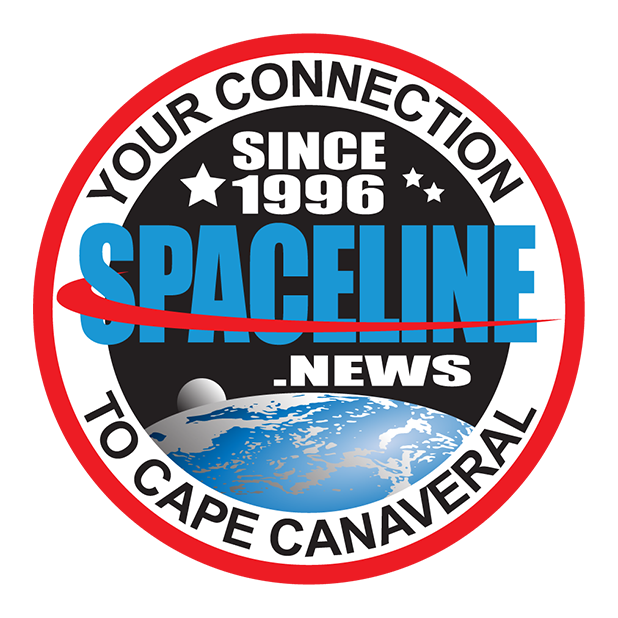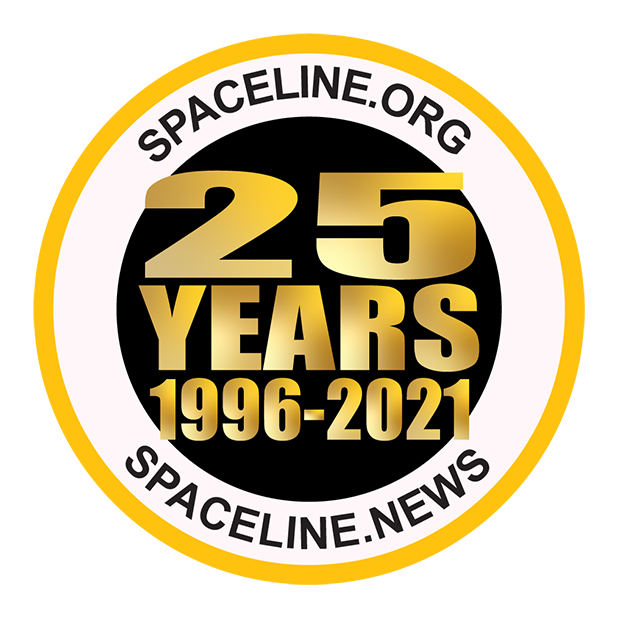Spaceline News Archives
December 2020
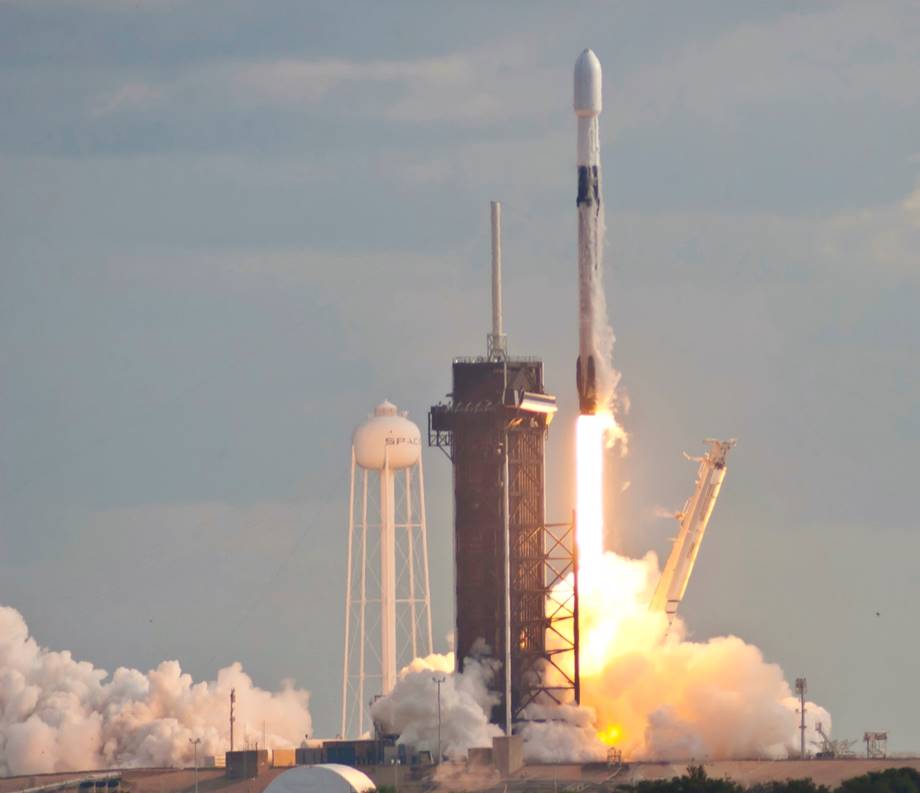
Falcon 9 NROL-108 Launch, Photo Courtesy Liz Allen/Spaceline
Falcon 9 Launches NROL-108 Payload
December 19, 2020 | Reported by Cliff Lethbridge
A SpaceX Falcon 9 rocket launched the NROL-108 payload at 9:00 a.m. EST today from Launch Pad 39A at the Kennedy Space Center. Launch was originally scheduled for December 17, 2020 but was postponed due to troubleshooting of overpressure in the rocket's second stage liquid oxygen tank experienced during the countdown. The first stage booster employed today was being flown for the fifth time, having previously supported the CRS-19 and CRS-20 missions, a Starlink mission and the SAOCOM-1B mission. The booster was successfully recovered today with a landing at Landing Zone 1 on Cape Canaveral Space Force Station. The rocket carried NROL-108, a classified payload for the National Reconnaissance Office (NRO). Little is known about the payload but NRO said that the launch was successful.
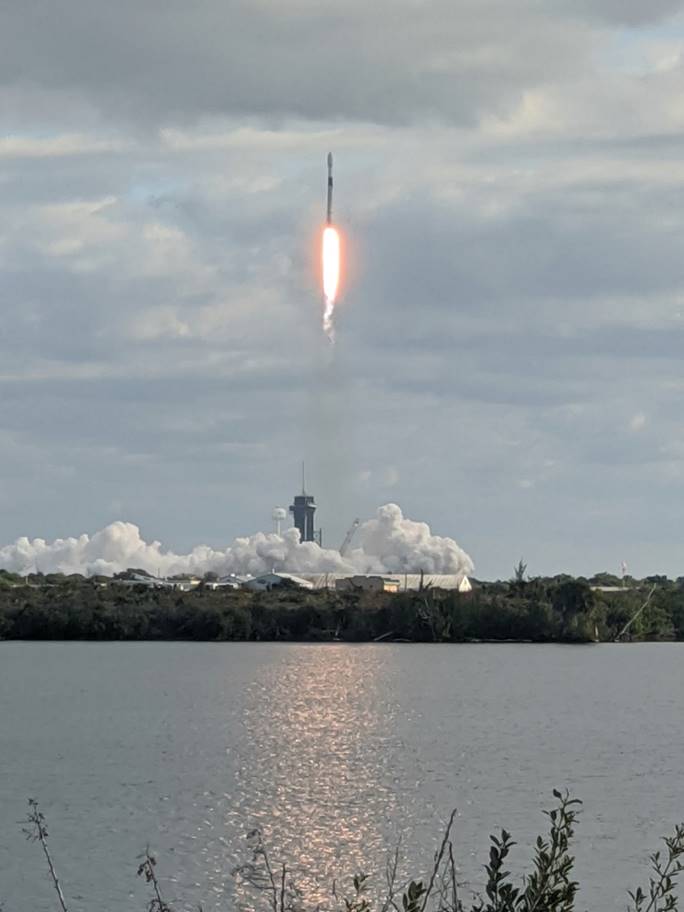
Falcon 9 NROL-108 Launch, Photo Courtesy Cliff Lethbridge/Spaceline
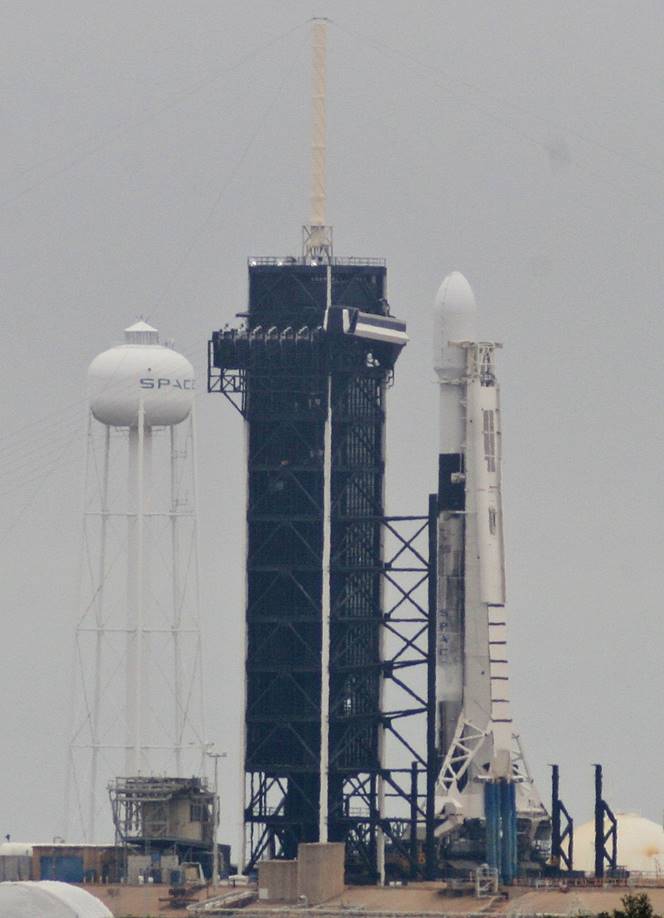
Falcon 9 NROL-108 On Launch Pad 39A, Photo Courtesy Liz Allen/Spaceline
Falcon 9 NROL-108 Launch Scrubbed
December 17, 2020 | Reported by Cliff Lethbridge
Launch of a SpaceX Falcon 9 rocket scheduled for 9:00 a.m. EST today has been scrubbed. The launch was pushed back to 9:45 a.m. EST due to bad weather as fog and low clouds plagued the launch site all morning. However, it was a technical issue that doomed today's launch attempt. An auto-abort was triggered at Launch Minus 1 minute, 53 seconds due to a second stage sensor reading. The sensor reading was traced to an apparent overpressure in the second stage liquid oxygen tank. The launch countdown was recycled to Launch Minus 45 minutes and holding but a scrub was called less than an hour prior to the expiration of today's launch window, which expired at 12:00 p.m. EST. Launch has been rescheduled for Friday, December 18, 2020 during a launch window which extends from 9:00 a.m. to 12:00 p.m. EST. Launch will be from Launch Pad 39A at the Kennedy Space Center and the rocket will be carrying NROL-108, a classified payload for the National Reconnaissance Office.
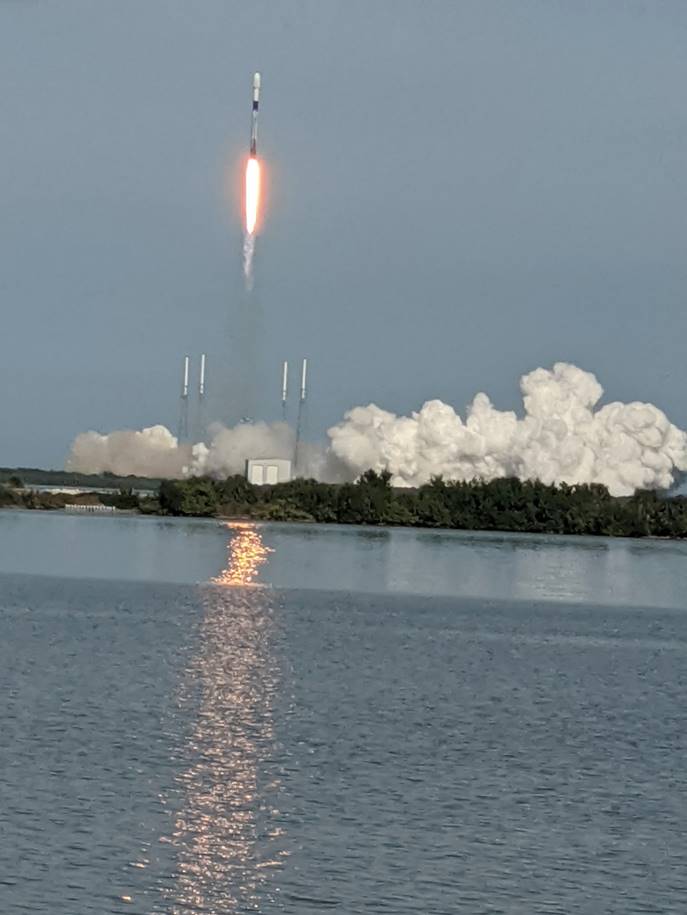
Falcon 9 SXM-7 Launch, Photo Courtesy Cliff Lethbridge/Spaceline
Falcon 9 Launches SXM-7 Satellite For SiriusXM
December 13, 2020 | Reported by Cliff Lethbridge
A SpaceX Falcon 9 rocket successfully launched the SXM-7 satellite at 12:30 p.m. EST today from Launch Pad 40 on Cape Canaveral Space Force Station. Launch was originally scheduled for December 11, 2020 but was postponed to allow additional ground system checks. Today's launch was scheduled for 11:22 a.m. EST but was postponed in order to provide optimal launch and recovery operations. The first stage booster employed today was being flown for the seventh time, having previously supported the Crew Dragon Demo-1 mission, the RADARSAT mission and four Starlink missions. The booster was successfully recovered today with a landing on the "Just Read the Instructions" drone ship on the Atlantic Ocean.
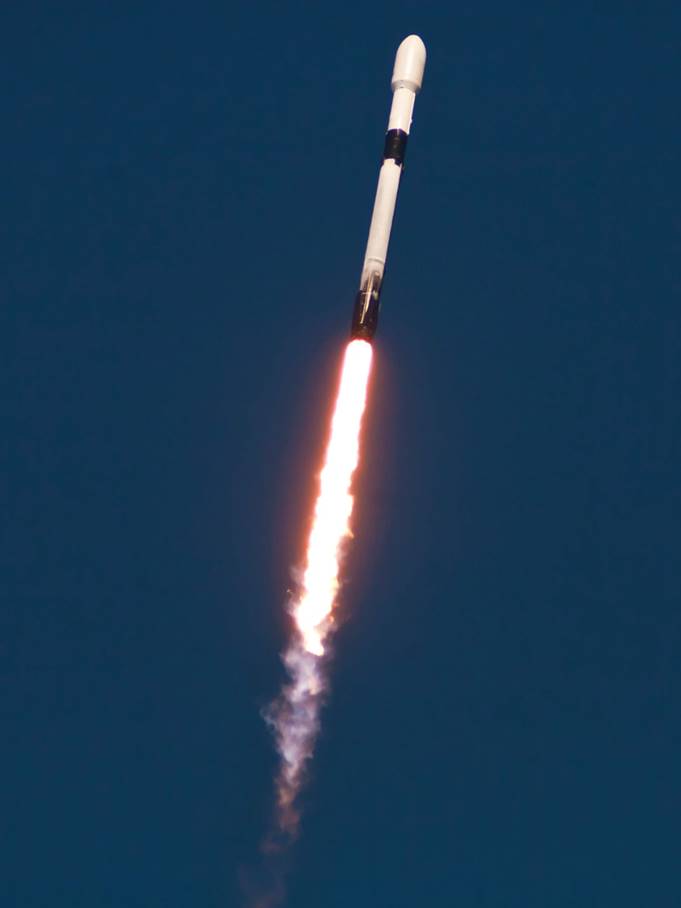
Falcon 9 SXM-7 Ascent, Photo Courtesy Liz Allen/Spaceline
The rocket's payload halves, one of which was being flown for the second time having previously supported the Anasis-2 mission, were also recovered on the Atlantic Ocean. SXM-7 is the latest satellite owned and operated by space-based radio provider SiriusXM. The satellite is designed to provide enhanced service to users in the United States and provide expanded service to Canada and the Caribbean. The satellite, built by Maxar, weighs about 15,000 pounds and can provide about 8,000 watts of programming and has a design life of 15 years. SXM-7 joins previously launched satellites XM-3, XM-4, XM-5, FM-5 and FM-6 and is intended to replace satellite XM-3. After being successfully deployed about 30 minutes after launch, the satellite will use its on-board thrusters to begin a journey to its final perch in geostationary orbit about 22,000 miles above Earth.
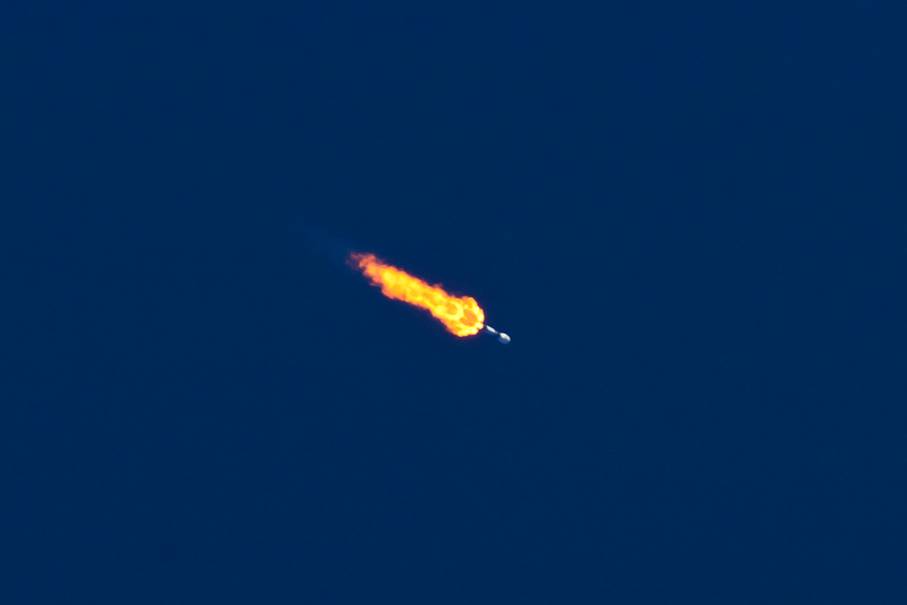
Falcon 9 SXM-7 Downrange, Photo Courtesy Liz Allen/Spaceline
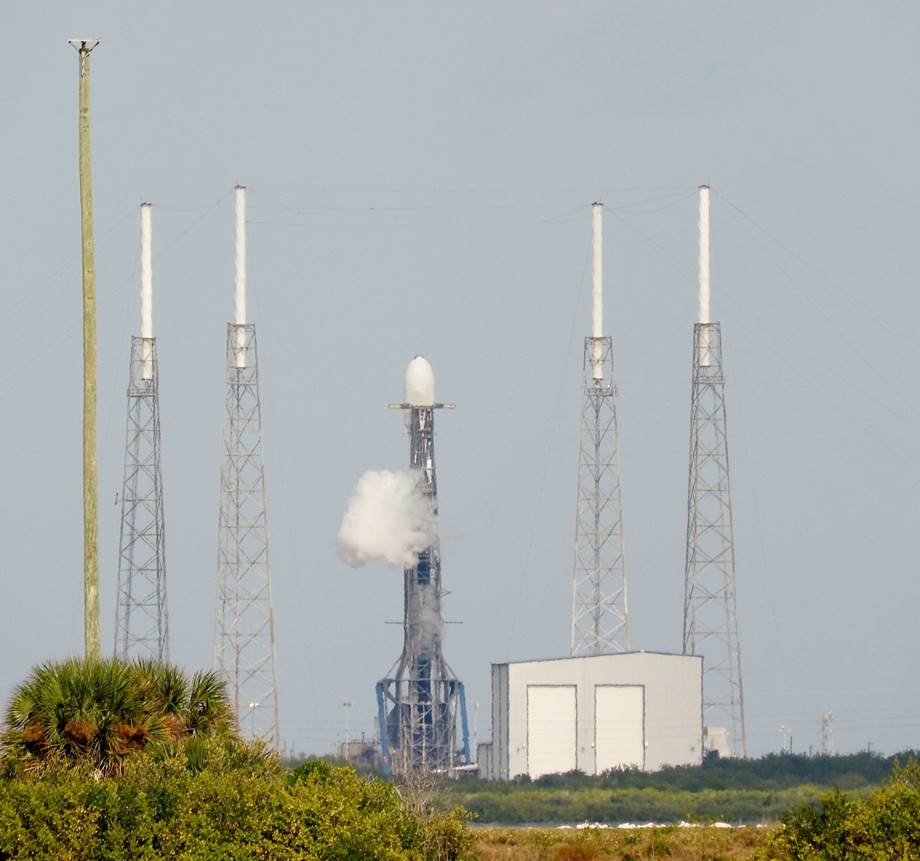
Falcon 9 SXM-7 On Launch Pad 40, Photo Courtesy Liz Allen/Spaceline
Falcon 9 SXM-7 Launch Scrubbed
December 11, 2020 | Reported by Cliff Lethbridge
Launch of a SpaceX Falcon 9 rocket scheduled for 11:21 a.m. EST today has been scrubbed. The launch was delayed to 12:20 p.m. EST and then to 12:55 p.m. EST to allow monitoring of upper altitude winds. Launch was scrubbed at Launch Minus 30 seconds reportedly to allow additional checks of ground support systems. Launch has been rescheduled for Sunday, December 13, 2020 during a launch window which extends from 11:22 a.m. to 1:21 p.m. EST. Launch will be from Launch Pad 40 on Cape Canaveral Space Force Station and the rocket will be carrying the SXM-7 satellite for space-based radio producer SiriusXM.
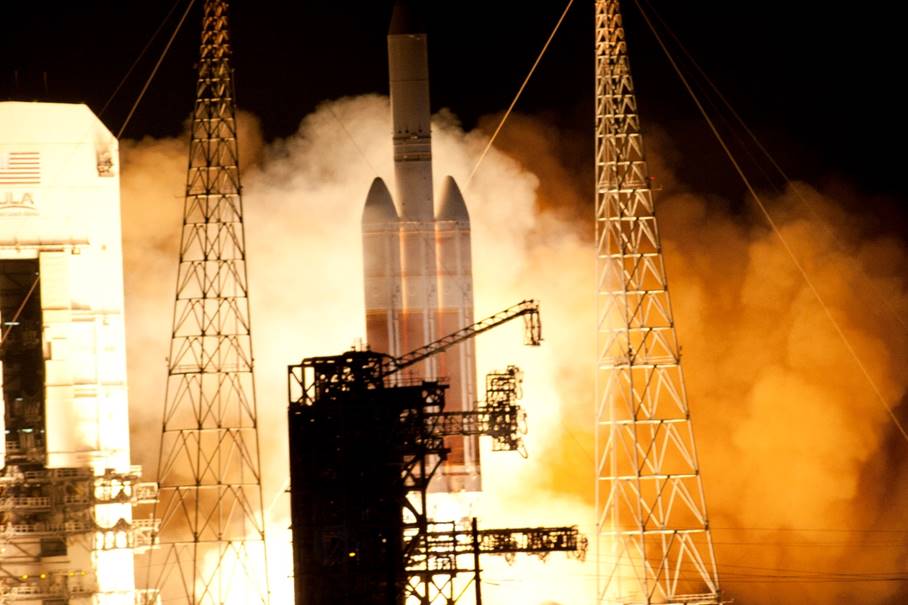
Delta IV Heavy NROL-44 Launch, Photo Courtesy Liz Allen/Spaceline
Delta IV Heavy Successfully Launches NROL-44 Satellite
December 10, 2020 | Reported by Cliff Lethbridge
A United Launch Alliance (ULA) Delta IV Heavy rocket successfully launched the NROL-44 satellite at 8:09 p.m. EST today from Launch Pad 37B on Cape Canaveral Space Force Station. Launch was originally set for 6:15 p.m. EST but was postponed to make up for lost time during the countdown. This launch was delayed over three months due to a number of technical and weather issues. The rocket suffered a dramatic launch pad abort at Launch Minus 3 seconds during its first launch attempt on August 29, 2020. This was due to a ground support issue. There were two launch attempts on September 29, 2020. The first was scrubbed due to bad weather and the second was scrubbed due to a ground system hydraulic leak. The rocket suffered another launch pad abort, this time at Launch Minus 7 seconds, during a launch attempt on September 30, 2020 due to a launch control issue. It was then determined that the swing arms that retract from the rocket during launch were not working properly, and repairs to those and other ground systems contributed to the launch being delayed until today. NROL-44 is a classified payload for the National Reconnaissance Office. Although little is made public about the mission, ULA said in a press release that the launch was successful.
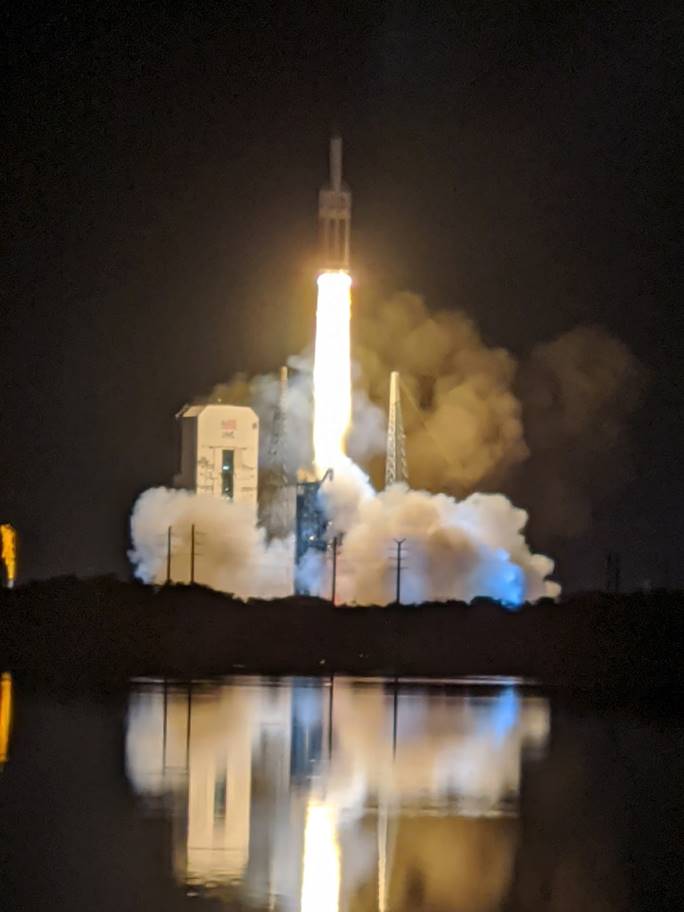
Delta IV Heavy NROL-44 Launch, Photo Courtesy Cliff Lethbridge/Spaceline
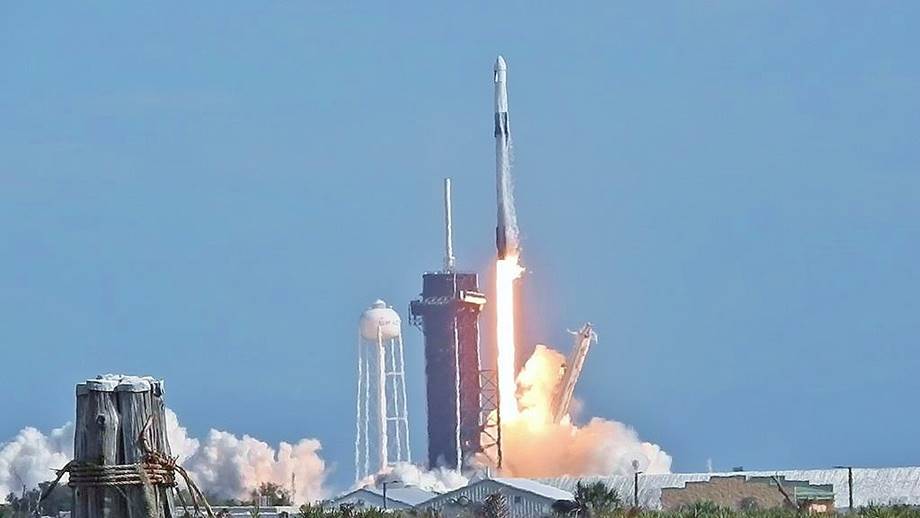
Falcon 9 CRS-21 Launch, Photo Courtesy Liz Allen/Spaceline
Falcon 9 Successfully Launches CRS-21 Payload For NASA
December 6, 2020 | Reported by Cliff Lethbridge
tA SpaceX Falcon 9 rocket successfully launched the CRS-21 payload for NASA at 11:17 a.m. EST today from Launch Pad 39A at the Kennedy Space Center. Launch was originally scheduled for December 5, 2020 but was postponed due to bad weather and high seas in the booster recovery area. The first stage booster employed today was being flown for the fourth time, having previously supported the manned Crew Dragon Demo-2 mission, the Anasis-2 mission and a single Starlink mission. The booster was successfully recovered today with a landing on the "Of Course I Still Love You" drone ship positioned on the Atlantic Ocean about 400 miles northeast of Cape Canaveral. The CRS-21 payload was deployed on an International Space Station (ISS) transfer orbit about 12 minutes after launch. The spacecraft is scheduled to dock to ISS on Monday, December 7, 2020 at around 1:30 p.m. EST.
ext
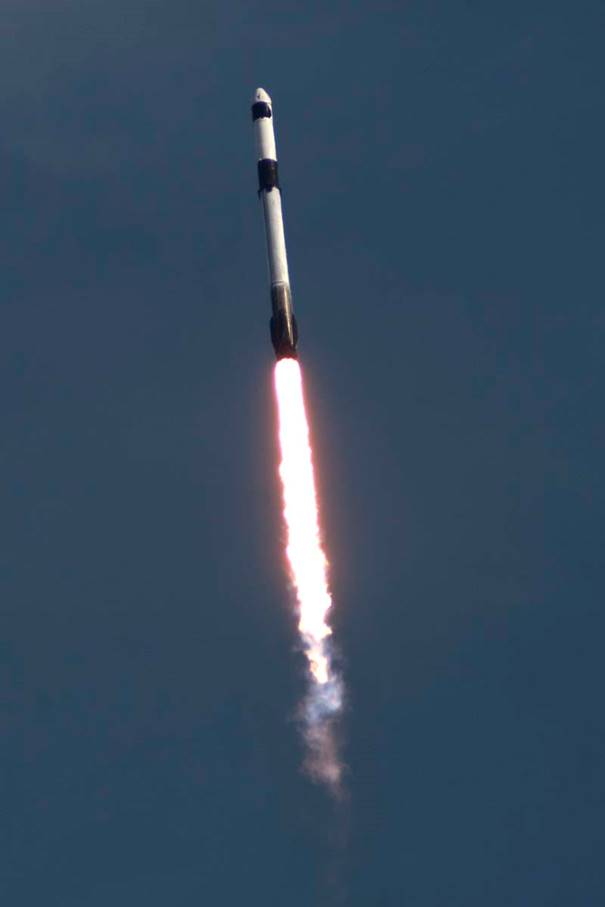
Falcon 9 CRS-21 In Flight, Photo Courtesy Liz Allen/Spaceline
The CRS-21 payload consists of a new and improved Dragon capsule designed to ferry supplies, equipment and experiments to and from ISS. The new version more closely resembles the Crew Dragon spacecraft than its predecessors. Among other enhancements, the new Dragon capsule has 20% more cargo volume and double the number of powered locker capacity to a total of 12. This is important in preserving and protecting experiments and science research samples in transit to and from ISS. The new Dragon is designed to make up to five flights to and from ISS and can stay docked to ISS twice as long as the previous version, making it essentially an extension of lab space for the crew during its stay. It is the first version of the cargo Dragon to be able to autonomously dock to and undock from ISS, something that previously only the manned Crew Dragon has been able to do.
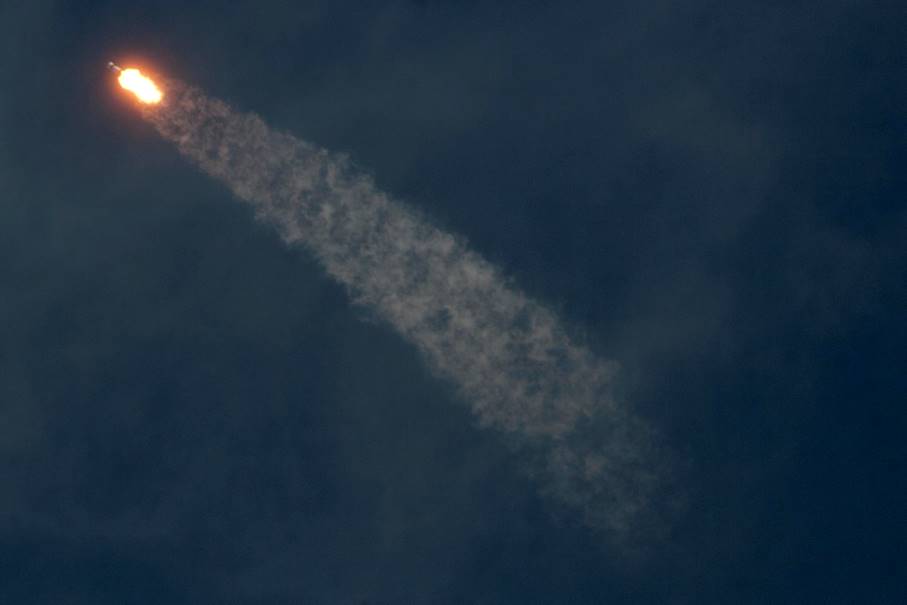
Falcon 9 CRS-21 Ascent, Photo Courtesy Liz Allen/Spaceline
The Dragon spacecraft is carrying more than 6,400 pounds of cargo to ISS on this the 21st SpaceX cargo flight to the station. Experiments flown include studying if and how microbes may be able to "biomine" through a process of mixing microbes with meteorite samples. A study of the heart and effects long duration spaceflight has on it, as well as a study on how white blood cells can be counted in space are also included. Experiments in brazing techniques and a study of the brain in microgravity are also being flown, as is the Nanoracks Bishop Airlock, a new and commercially produced airlock which will provide hosting opportunities for additional ISS experiments and become a new doorway between the interior and exterior of the space station. Today's mission marks the 100th successful Falcon 9 launch since the vehicle was introduced in June, 2010 and the first SpaceX cargo flight in the second Commercial Resupply Services (CRS-2) contract with NASA.
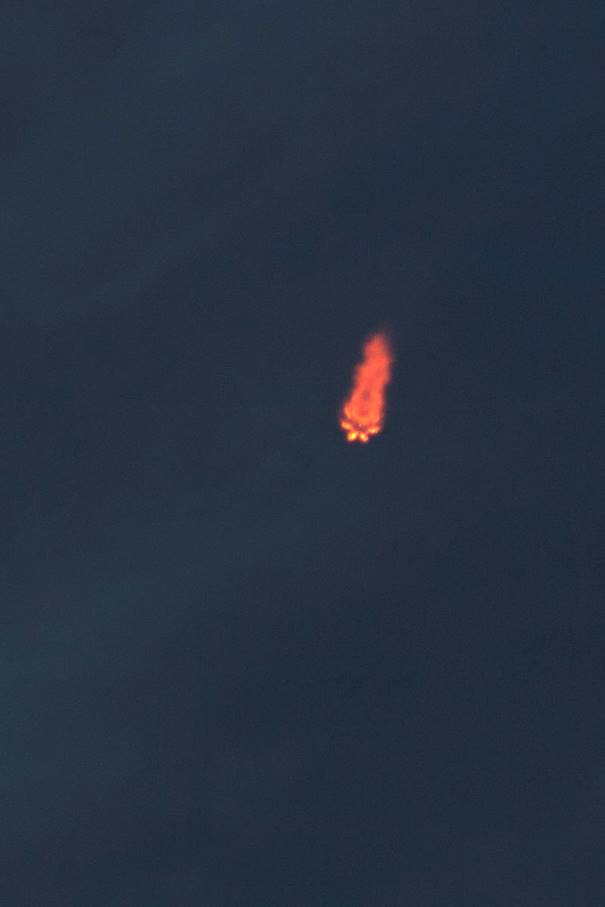
Falcon 9 CRS-21 Downrange, Photo Courtesy Liz Allen/Spaceline
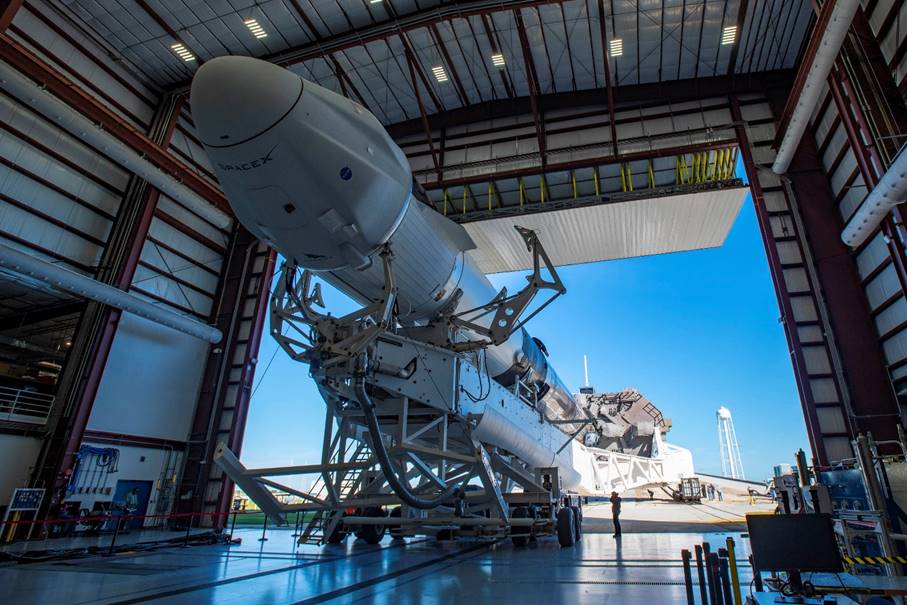
Falcon 9 CRS-21 Rollout To Launch Pad 39A, Photo Courtesy SpaceX
Falcon 9 CRS-21 Launch Scrubbed
December 5, 2020 | Reported by Cliff Lethbridge
A SpaceX Falcon 9 launch scheduled for 11:39 a.m. EST today has been scrubbed. The scrub was called about four hours prior to launch due to bad weather in the booster recovery area on the Atlantic Ocean about 400 miles northeast of Cape Canaveral. Launch will be from Launch Pad 39A at the Kennedy Space Center and has been rescheduled for Sunday, December 6, 2020 at 11:17 a.m. EST. The rocket will be carrying an unmanned Dragon spacecraft to the International Space Station (ISS) on mission CRS-21, the 21st SpaceX CRS flight to the station and the first under the second Commercial Resupply Services (CRS) contract with NASA. This will also be the first flight of an upgraded Dragon capsule which can carry more cargo and can make autonomous dockings and undockings to and from ISS.


